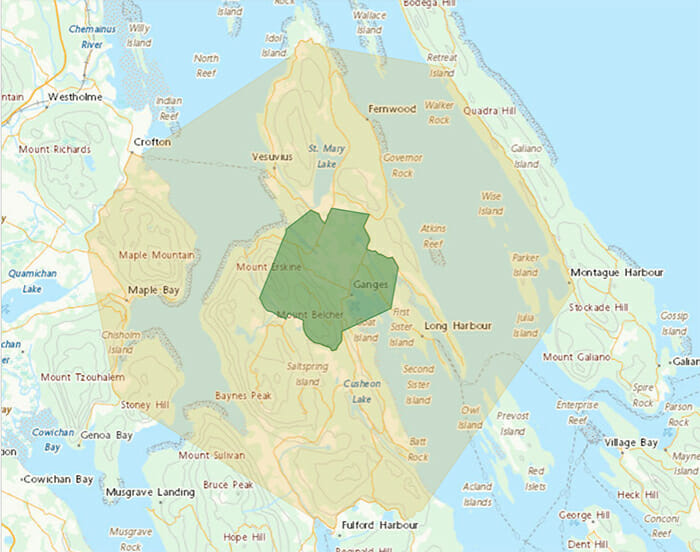Discovery of the H5N1 highly pathogenic avian influenza (HPAI) in birds on Salt Spring last week has led to much of the island being declared a Primary Control Zone (PCZ) by the Canadian Food Inspection Agency.
The infected zone boundary roughly follows a five-kilometre diameter circle centred on Ganges; the restricted zone encompasses most of Salt Spring Island north of Fulford. Movement controls are in place per the Health of Animals Act, requiring special permits to move “birds, their products and by-products, as well as things exposed to birds” into, out of, within, or through the PCZ.
Avian influenza (AI), commonly known as “bird flu,” is a contagious viral infection that can affect several species of food producing birds as well as pet and wild birds. AI viruses are classified into either low pathogenicity or high pathogenicity viruses, based on the severity of the illness caused in birds. Salt Spring Poultry Club board member Elsie Born said the avian influenza was arriving on migrating birds, and implored islanders to take action to help large and small flock owners — as well as the wild bird population, which should not be fed by humans at this time.
“Limiting food that attracts wild birds, and keeping your birds away from open water sources is critical,” said Born. “We know this is hard for everyone, but please buckle down for the time being.”
Poultry owners who need to move birds for processing purposes must contact the BC Ministry of Agriculture to obtain a permit.
“Above everything else, please, please do not dump birds this year,” said Born. “We as a club want to help, but birds running around are potentially devastating to anyone and everyone on this island.”
According to Inspection Canada, avian influenza viruses — such as the H5N1 virus present in Asia — may, on rare occasions, cause disease in humans; transmission to humans occurs through close contact with infected birds or heavily contaminated environments.

